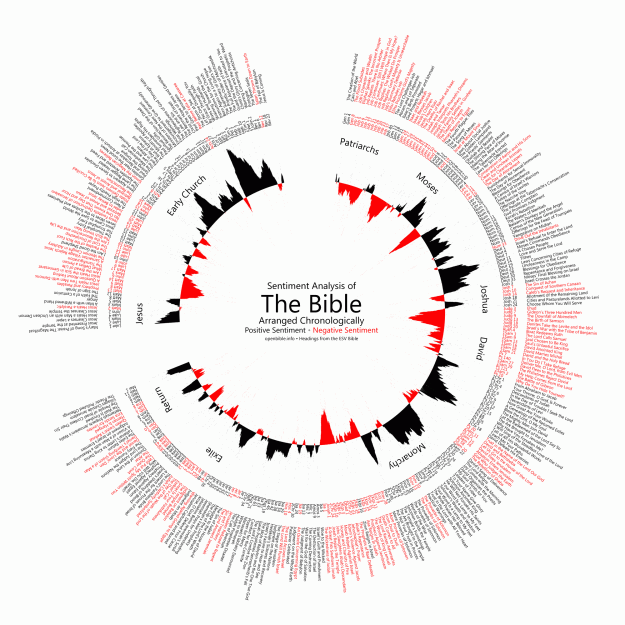Editors’ Choice: Bible Sentiment Analysis
This visualization explores the ups and downs of the Bible narrative, using sentiment analysis to quantify when positive and negative events are happening:
Methodology
Sentiment analysis involves algorithmically determining if a piece of text is positive (“I like cheese”) or negative (“I hate cheese”). Think of it as Kurt Vonnegut’s story shapes backed by quantitative data.
I ran the Viralheat Sentiment API over several Bible translations to produce a composite sentiment average for each verse. Strictly speaking, the Viralheat API only returns a probability that the given text is positive or negative, not the intensity of the sentiment. For this purpose, however, probability works as a decent proxy for intensity.
